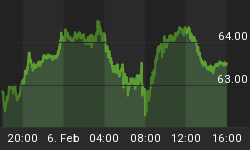There are growing fears that an economic collapse is on the way. Is this fear justified? Before we conclude that it is a by-gone conclusion and that it's time to head for the hills, let's first cover how and why an economy collapses. In this essay I talk about economic collapse as an "internal event". Keep in mind that there are "external" reasons for an economy to collapse (such as war and/or natural events such as earthquakes etc.)
Keep in mind first that we are talking about an "economic" collapse... don't confuse this with a "currency" collapse. History has witnessed thousands of currencies collapsing into oblivion and in many of those the economy in question was able to get through it without general harm to the economic infrastucture and much of society. Yes...currency collapses are very painful but they don't necessarily spell doom for society.
My former country, Yugoslavia, experienced both a currency collapse and also an economic collapse. It was, after all, a communist country (hard-core socialism) and so it was already an "economic basket case". The populace was already suffering before its currency was hyper-inflated into oblivion. During 1993-94, Yugoslavia's hyperinflation caused the dinar (its currency at the time) to become worthless and the currency indeed collapsed. As I have written before, "Economic disintegration leads to social disintegration". Soon the currency collapse led to economic collapse. Chaos and civil war followed.
Could a similar economic collapse occur in the United States?! The harsh truth is that it is not out of the question and...let's face it... we are clearly trending in that direction.
Back to the central topic of "how an economy collapses". It can easily boil down to the simple dynamic of supply and demand. A good economy is a reasonable balance between supply (production) and demand (consumption). Put simply, when consumption greatly exceeds production, you have an "imbalance" which (if not rectified) leads to an unsustainable situation resulting in collapse. The most important hallmark of a successful economy is production. This means that people are producing (goods and services) through work, effort, ambition, innovation and initiative. This is usually embodied in the private sector. The most important economic incentive for production is profit.
The problem is consumption and the culprit is usually found in a single entity...government. No matter how you slice or spin it, for reasons both good and bad, the government (the public sector) is an engine of consumption. More government means more consumption and it also means a coercive burden on the private sector. What happens when the folks in the private sector can no longer sustain the folks in the government?
The current data bear out this imbalance. It was recently reported that over 48 million people in the US receive food stamps. Our current federal government budget deficits annually exceed a mind-boggling $1 trillion. Total federal debt is surpassing $15 trillion. Unfunded federal liabilities (Social Security and Medicare) are passed $50 trillion. Then there is war! War and national defense is also very expensive. Oh...and don't forget about massive bank bailouts too. This explosion of massive spending can not be sustained and the economic danger is unprecedented.
As I wrote earlier, Yugoslavia was a communist country. Communism is an extreme form of "statism" or the idea that "the State" ...government... should be growing in size, scope and reach. A communist government typically rewards or encourages consumption while simultaneously discouraging or penalizing production. Communism obliterates the "profit motive"...so why bother producing? Therefore, communism (or other form of totalitarian government) never survives on its own. The imbalance is impossible to carry indefinitely.
Never forget that federal and state governments are engines of consumption. Government does not produce wealth... it can only take it or destroy it. Politicians promise more and more to win favor with voters. More and more folks are either employed by the government or are dependent on government. Meanwhile, less and less folks are producing and paying for this burden. Is it such a mystery that this type of dynamic usually ends badly? We can only hope that our leaders and our society take the necessary and painful steps to mitigate or avert catastrophe (such as shrink government). Keep praying!
You and I will not be able to turn the situation around in any meaningful way (not yet anyway) but we can take steps to protect ourselves as citizens and investors. I will provide more details in part two of this essay (coming shortly) and make available more video commentaries at my blog, but let me reveal the first thing you should do:
Accumulate gold and silver physical bullion to be diversified away from the risk of paper investments (I cover this in a short video commentary found at my blog (or my Youtube channel (www.youtube.com/paulmlad). That is a first step and an easy step that anyone can do immediately. I will give more details on this and other considerations in part two of this essay and other videos to come.
The bottom line is that an economic collapse will be an ugly event. Let Greece be a warning to you. Even lesser events (such as a banking crisis) could wipe out your savings or investments. Preparing for the potential problems of an economic collapse is prudent and much of what you can do does not require a major lifestyle change (such as moving to a distant cave). The point is that the majority of citizens and investors are not adequately protecting themselves.
What are you doing to minimize the risk? See you in part two (coming soon)...















